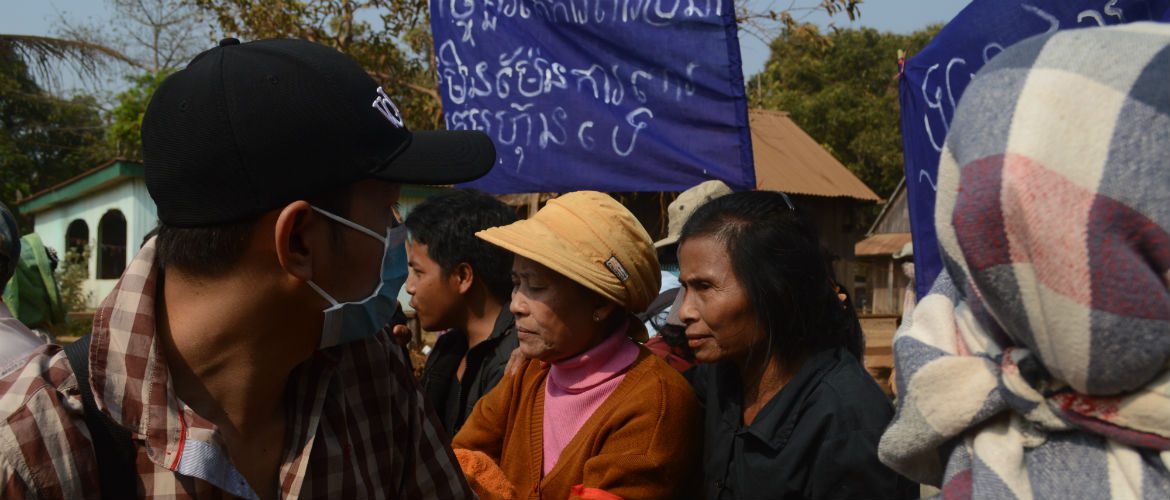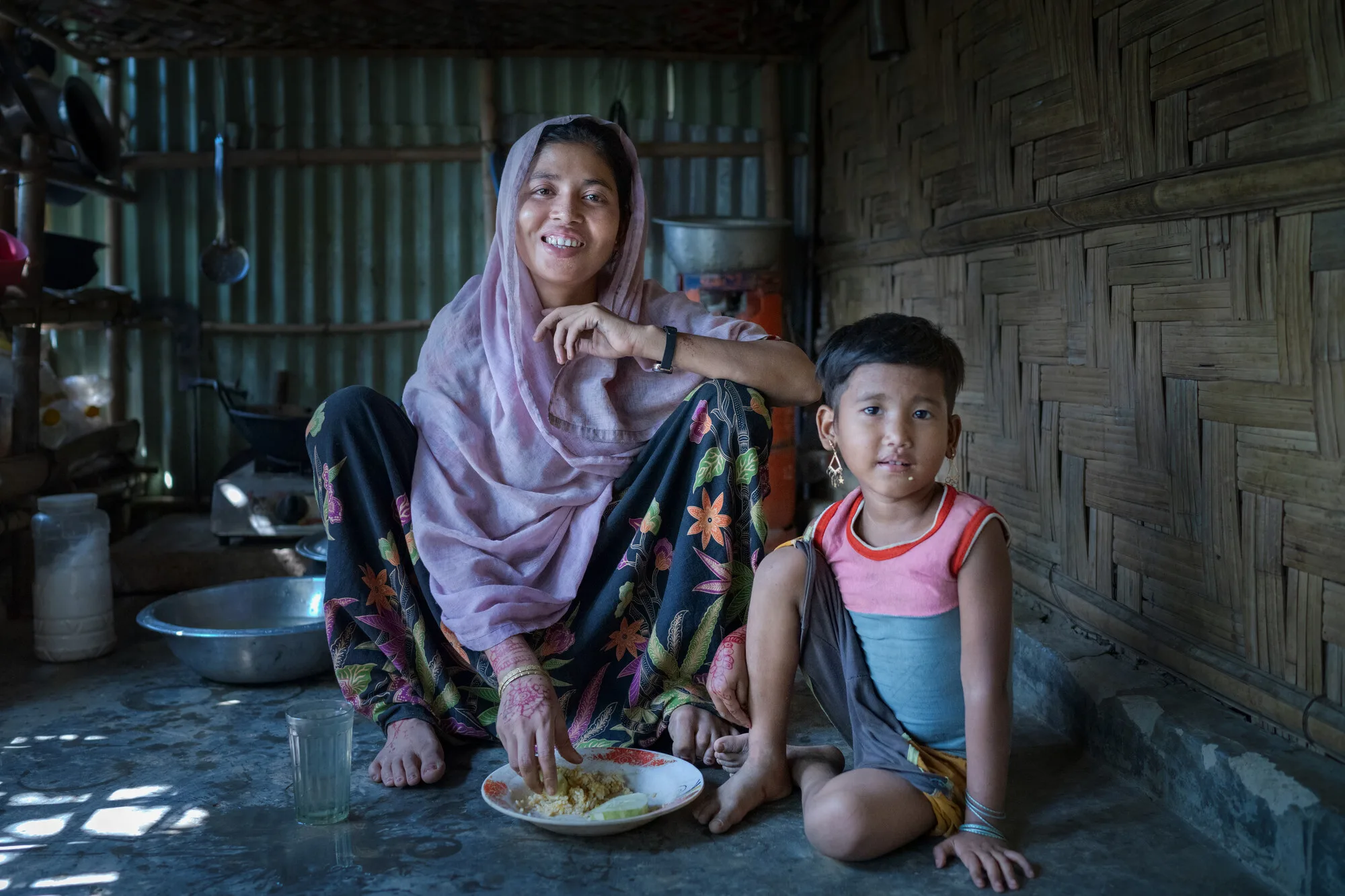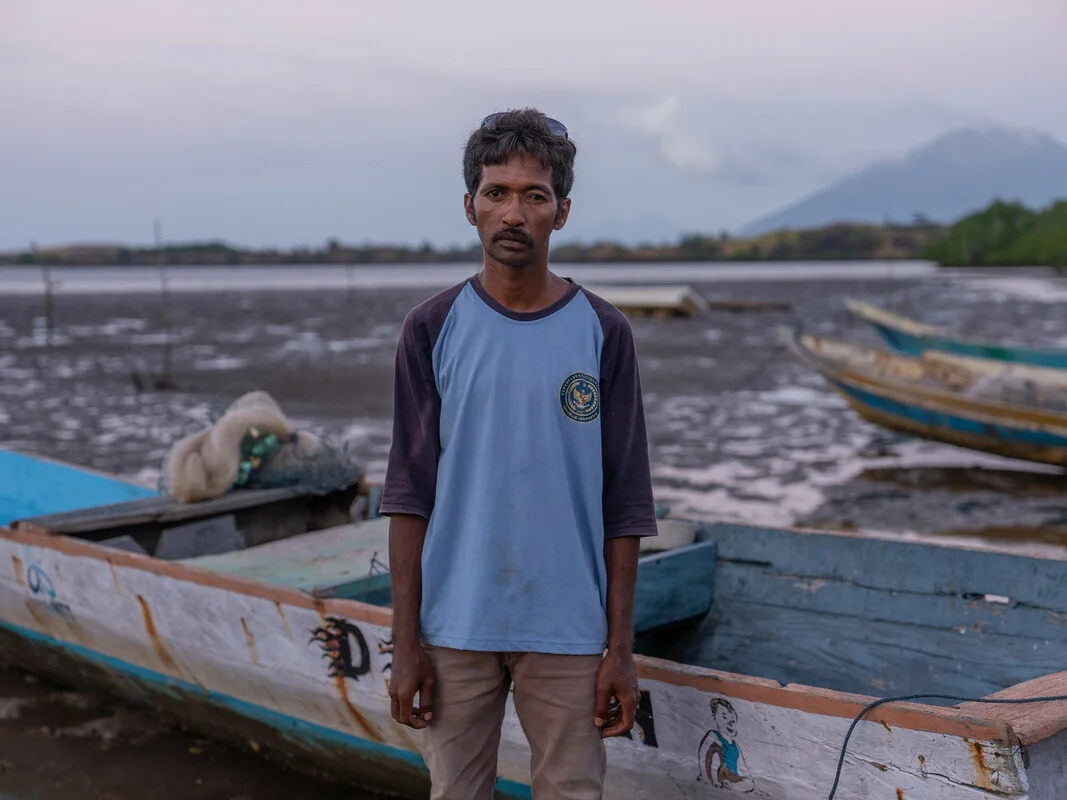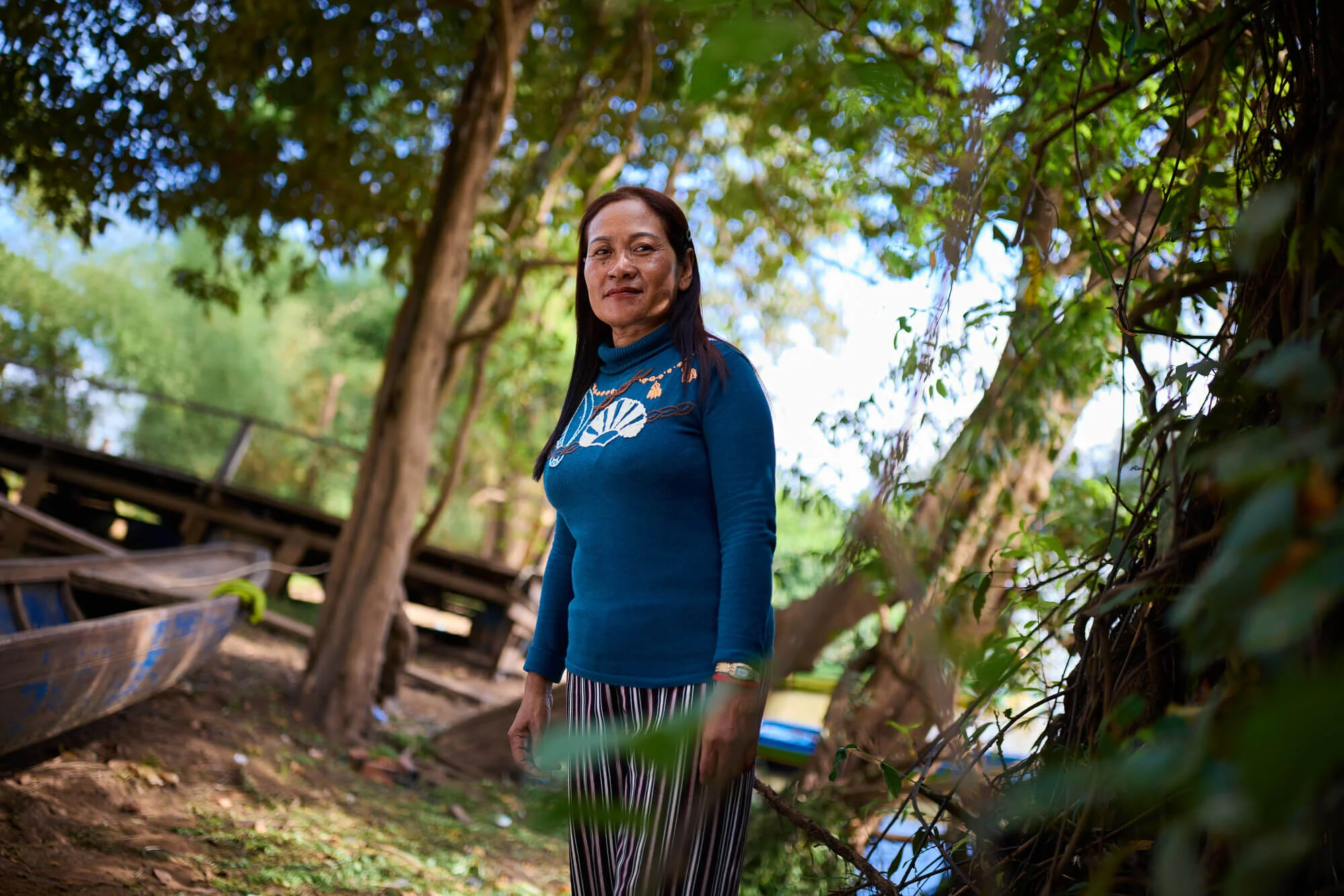By Capacity Building Coordinator, Worawan Sukraroek, and Robin Narciso, Communication Officer, Oxfam Mekong.
Women are becoming frontline activists in the battle against the dams that threaten their communities.
Bua Lha traveled all the way from the Pak Mun River in northeast Thailand, to Stung Treng Province in Cambodia, to share the lessons of her lifelong struggle with the Pak Mun Dam. Her stories are for the Cambodian communities who are now facing a similar threat from the Lower Sesan 2 Dam.
Her visit was organised by Oxfam’s partner, Mekong Watch. The objective was to help communities influence decisions over the Mekong dams. During the visit, 32 communities shared the stories of their fight to defend their land, home and river resources.
At the meeting Bua Lha met Mae Sud (pictured above), a Cambodian activist. The two women exchanged their views and stories of the lifelong battle against the dams that are causing devastating impacts on their communities.
From the outset, the Pak Mun project was highly controversial due to the damage to the rich fisheries of the Mun River: the largest tributary of the Mekong River. The dam cut across the Mae Mun River and stopped fish from migrating to their breeding ground to reproduce. This severely impacted the livelihoods of the Thai northeastern communities.
Only after a decade of negotiation and campaigning did the Pak Mun people obtain the reopening of the dam gate to somewhat restore their fisheries.
The Lower Sesan 2 dam, although not yet complete, is already concerning scientists and communities alike; studies predict the dam will decrease fisheries by around 9.3% basin-wide, and put more than 50 fish species into extinction.
Mae Sud has been an advocate for the rights of affected communities long before the Lower Sesan 2 case. She first started supporting her community with the Yali Falls Dam and the Sesan Cascades projects in Vietnam, both of which impacted her Cambodian community. While leading these campaigns, she mobilised communities, pressured dam developers for negotiation and rallied.
Coming from the Pak Mun campaigns, Bua Lha told the communities how she collected the villager’s testimonials, documented the progress of the dam, and organised a three month long protest that ended with the occupation of the dam site. Bua Lha added that the “battle of Pak Mun” saw women as frontline activists.
“As women we have the strength to negotiate and led the dam campaign. We master the art of negotiation,” said Bua Lha.
“We all have one dream. We want to be included in the decisions over the dams. We want our rights to be heard”.
After hearing her Thai counterpart’s story, Mae Sud commented: “When we have the opportunity to share our stories and struggle, I feel that we are not alone. There are other communities out there who fight against destructive dam projects. In solidarity, we will continue to advocate for our rights”.
Read more about Oxfam’s work in the Mekong.



